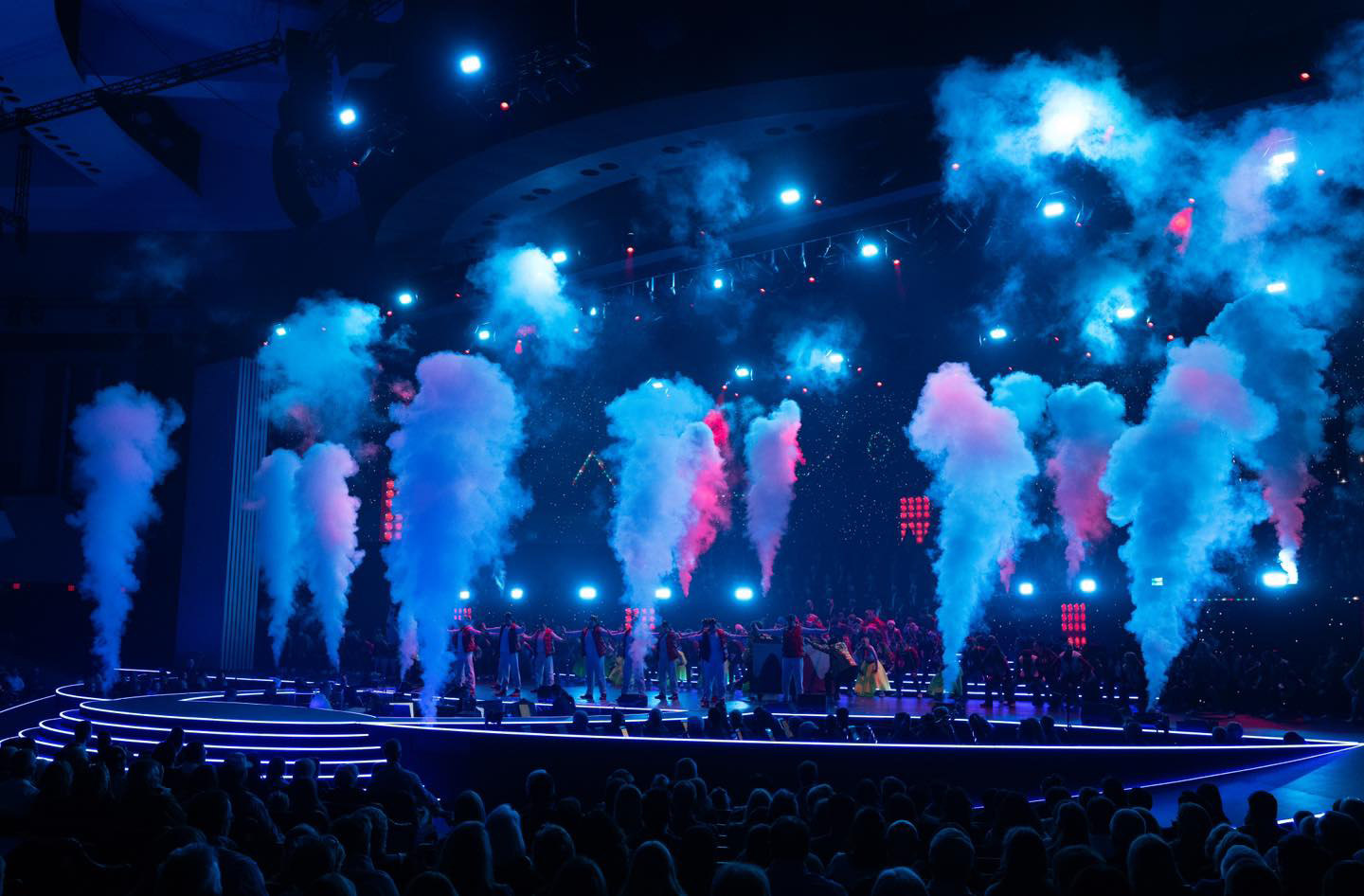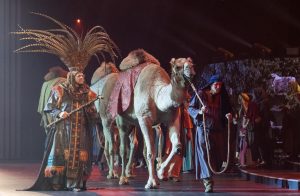A few weeks ago, I woke up to a text message saying it had snowed overnight, despite there having been no measurable snowfall in North Carolina since 2022 nor any forecasts of snow for that morning.
Intrigued, I looked out my window and indeed, there was snow on the ground. So, I got dressed and began brushing it off my car before that morning’s Old Testament Interpretation class. My friend would soon meet me at my house so we could go together.
As I brushed the snow in my new, thick winter coat and warm gloves, I was admittedly a little excited about the weather. Sure, it would melt in a couple of hours, but at least my walk to class would be wintery and scenic. By the time I reached my rear window, the excitement had been replaced with a desire to go back into my warm home and have a cup of hot coffee.
In turn, I found myself thinking of the small community of unhoused folks that live across the street from the church I attend downtown. They sometimes sleep on our church’s front porch or in our window wells, and our ministers keep a list of local resources ready to help.
I remember silently considering, “This must have been a cold night to be one of our unhoused neighbors. I wonder if they were prepared for this unexpected weather.”
“How do I steward my privilege amid my neighbor’s needs?”
Admittedly, I could do more to help my neighbors in need. I donate money to charities when my graduate student budget allows, which is not that often. I participate in service projects when it’s convenient for me and give away clothes that no longer fit. I could do less, but I could certainly do more.
And I found that moment of privilege — knowing I could go inside and warm up immediately after brushing my snowy car — convicting. For the rest of the semester, especially as Christmas approaches, I’ve been thinking about it. How do I steward my privilege amid my neighbor’s needs?
‘The Gift of Christmas’
While scrolling on TikTok, I was reminded yet again of this moment when I saw a video of a Christmas show at Prestonwood Baptist Church, a Southern Baptist megachurch in Plano, Texas.
The video showed a brief clip of their annual “Gift of Christmas” show. After doing some digging, I learned it was a 100-minute-long presentation featuring Santa flying over the audience in his sleigh, a huge cast of singers and dancers, elaborate lights and live animals in a nativity scene.
Ticket prices range from $19 to $69, and audience members have the option of paying $25 ($12.50 for kids) for a buffet dinner as part of the experience. I reached out and asked where the proceeds from these performances go but only received an automated “your request has been received” email response.
Despite being a 40-year tradition at the church, the $1 million Broadway-style production has faced backlash for its extravagance in recent years. In the past, church leaders have justified the performance by explaining the miracle of Jesus’ birth warrants an over-the-top celebration. They told the Dallas Morning News last year, “Jesus deserves our absolute best. … It’s unfortunate that the perennial American tradition of the church Christmas program now draws criticism.”
The church also recently made headlines when one of their associate pastors, Scott Turner, was nominated by Donald Trump to serve as secretary of the Department of Housing and Urban Development. You can read the National Fair Housing Alliance’s statement on his nomination here, where they urge Turner to “fully enforce the Fair Housing Act” to ensure equal housing opportunities for all Americans, especially considering the current inflated housing market.
I thought again of my unhoused neighbors. How many of them could have been fed a meal with the funds it took to put on a performance like the “Gift of Christmas”?
Clearly, Prestonwood and most other megachurches — but not all — are engaged in community ministries throughout the year. Prestonwood, for example, lists five local agencies it partners with in addressing homelessness and three agencies it collaborates with on “community restoration.” Prestonwood also gives $1 million annually to the Southern Baptist Convention’s Lottie Moon Offering for International Missions.
“Maybe it’s possible to have it both ways — to serve the poor while staging Christmas extravaganzas — but I struggle to reconcile this.”
As commendable as those things are, they are not what the megachurch is most likely known for in its affluent North Dallas suburb. Maybe it’s possible to have it both ways — to serve the poor while staging Christmas extravaganzas — but I struggle to reconcile this.
After scanning my social media, I realized I’m not the only one on this wavelength. Across multiple videos circulating about the show, commenters everywhere are asking the same question: Is this elaborate Christmas show really what churches should be doing to celebrate the birth of our Savior?
Reason for the season?
That is a question that extends far beyond Prestonwood to every Christian home. How many of us stage our own Christmas extravaganzas through parties, presents and purchases galore?
Our Savior, yes, is awe-inspiring and worthy of all the praise.
But he was also born in a lowly manger (Luke 2:7). Conceived under seemingly promiscuous circumstances (Luke 1:26-38). Had to flee persecution and lived as a refugee in Egypt for the first part of his life (Matthew 2). And considering the Gospel accounts of his life, likely never became a particularly wealthy person.
Our Savior instructed his followers to leave everything behind if they wanted to follow him (Matthew 19:21), and proclaimed the kingdom of heaven belongs to the poor (Luke 6:20). In a lesson told in all three synoptic Gospels, he told believers it is easier for a camel to pass through the eye of a needle than for a rich person to enter the kingdom of heaven (Matthew 19:24, Mark 10:25, Luke 18:25).
Given all the biblical evidence of his life and ministry, it seems Jesus not only cared very little about having money while living on earth but heavily rejected its moral value.
And yet, we celebrate his birth with a lavishly produced Christmas spectacular? And charging people to celebrate with us?
The Bible does not narrate what exactly occurred in the hours and weeks after Jesus’ birth. But I imagine it looked a lot like humble acts of service and community amid a difficult, scandalous and love-filled situation.
“I’m sure I spent more money on wrapping paper this month than I did helping others.”
In my imagination, it looks like Joseph taking care of Mary and trying to notice when she was too tired, hungry, frustrated and overwhelmed. Joseph’s friends offering advice during this curious situation. Local women acting as midwives to ensure Mary and Jesus’ health post-birth. Animals of the barn snuggling up to the family to comfort baby Jesus as he cried. A local helping the family travel out of Bethlehem. Egyptians taking them in, feeding them and protecting Jesus from the political violence at hand under King Herod’s decree.
Does it not feel more meaningful, and perhaps more thematic, to celebrate his birth by noticing those around us, taking care of our neighbors and finding ways to love each other?
I’m sure the “Gift of Christmas” is a wonderful show for that church’s community members to enjoy. And amid our tendency to make Christmas marketable and fun in the U.S., it’s certainly not the only overly extravagant Christmas show out there. I’m sure I spent more money on wrapping paper this month than I did helping others.
We are all guilty of commodifying Christmas, but what if our “over-the-top” celebrations looked instead like over-the-top generosity, love and care?
What if remembering the birth of our Savior prompted us to remember the peculiar situation of his birth: God incarnate, joining humanity in the form of an impoverished baby who was born under strange circumstances.
I wonder, was it cold in the manger the night he was born, while his neighbors staying at the inn snuggled in their warm beds? Did someone nearby hear his crying and offer a blanket? Perhaps we give him our praise by listening for this cry, and responding with love.
Mallory Challis is a master of divinity student at Wake Forest University School of Divinity. She is a former BNG Clemons Fellow.





